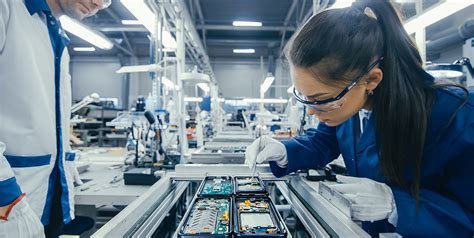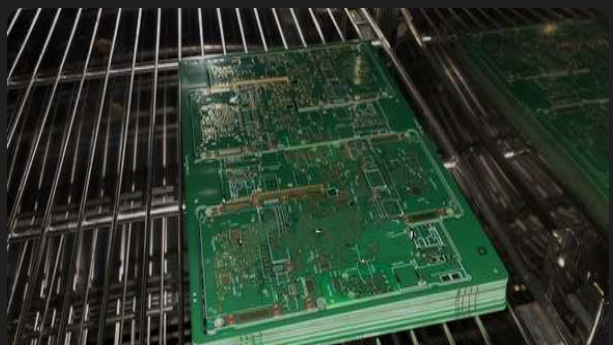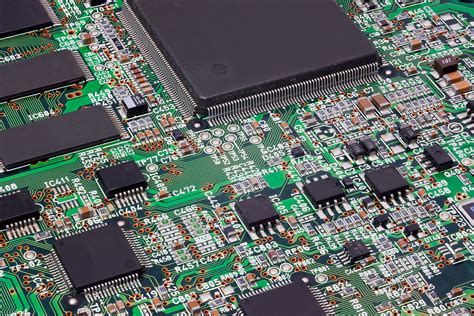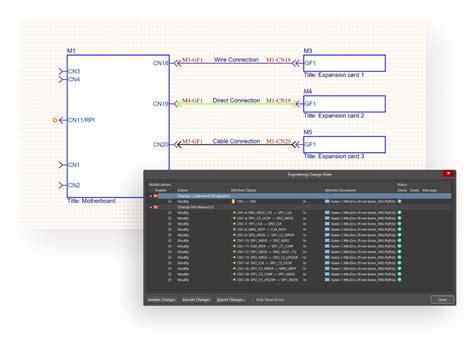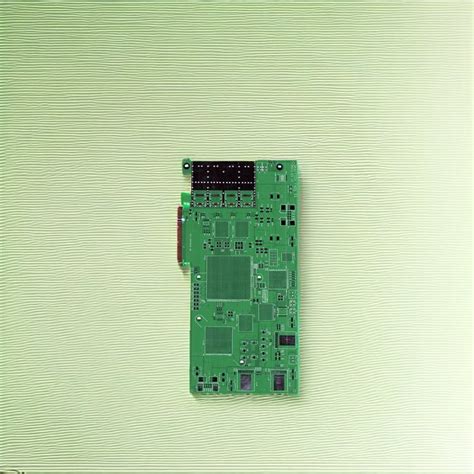Effortless Electronics: The Rise of Turnkey PCB Assembly
Key Takeaways
The advantages of turnkey PCB assembly are pivotal for businesses looking to thrive in a competitive electronics landscape. By opting for turnkey solutions, organizations can enjoy a streamlined approach that manages every aspect of the pcb assembly process, from design to manufacturing and delivery. This holistic service significantly reduces the complexities associated with sourcing components and managing logistics, allowing companies to focus on their core competencies. Moreover, the efficient integration of services often leads to faster turnaround times, enabling businesses to capitalize on market opportunities effectively. With cost reduction as another critical benefit, turnkey PCB assembly helps eliminate unnecessary expenses associated with multiple suppliers and fragmented processes. Ultimately, as firms seek to accelerate product development timelines, embracing pcba solutions becomes increasingly essential for maintaining a competitive edge in today’s fast-paced technology environment.
Understanding Turnkey PCB Assembly: A Comprehensive Overview
Turnkey PCB assembly, or PCBA, is a streamlined manufacturing process where a single provider oversees the entire assembly of printed circuit boards. This method integrates all aspects of pcb assembly, from initial design and component sourcing to the assembly and testing of the final product. In this approach, businesses benefit from enhanced efficiency as they work with a single point of contact, reducing potential miscommunications that can arise when multiple vendors are involved. Moreover, turning to turnkey solutions means less time spent on logistics and coordination, allowing teams to focus more on innovation and development. The ability to source components through one supplier often leads to better pricing structures and diminishes lead times, ultimately optimizing the financial aspects of the project. Additionally, with an emphasis on quality throughout the process, companies can achieve a higher standard of reliability in their electronic products. By adopting turnkey PCB assembly, businesses are not just simplifying their production processes but also paving the way for faster time-to-market solutions that meet today’s demanding technological pace.
The Advantages of Turnkey PCB Assembly for Modern Electronics
Turnkey pcb assembly is increasingly recognized for its myriad advantages in the modern electronics landscape. This innovative approach to pcba not only minimizes the complexities often associated with manufacturing but also offers a comprehensive solution that seamlessly integrates multiple stages of the production process. By consolidating design, components sourcing, assembly, and testing into a single point of contact, businesses can achieve significant time savings. This streamlined process enables companies to allocate resources more efficiently and focus on core activities such as product innovation and market strategy. Furthermore, turnkey pcb assembly enhances quality control by reducing the potential for discrepancies among various suppliers, ensuring that every stage meets established standards. The integration of these processes often leads to reduced lead times and improved product consistency, making it an attractive option for firms looking to stay competitive in a fast-paced market. Ultimately, the adoption of turnkey pcba is proving essential for businesses aiming to enhance operational efficiency while maintaining high-quality standards in their electronic products.
Streamlining Production: How Turnkey Solutions Enhance Efficiency
The adoption of turnkey PCB assembly has significantly transformed how electronics are produced, leading to increased productivity across manufacturing processes. By providing a comprehensive service that manages every step of PCB assembly – from design to delivery – businesses can focus on their core competencies while ensuring a high-quality output. These integrated approaches not only simplify workflows but also reduce the number of suppliers involved, fostering better communication and coordination throughout the project lifecycle.
When examining the efficiency gains from these solutions, it’s important to note that turnkey assembles typically involve a streamlined project management methodology. This allows for quicker decision-making and problem resolution, resulting in shorter lead times and faster time-to-market for products. Companies utilizing these solutions experience an impressive reduction in operational silos, as cross-functional teams can work more cohesively, ensuring that every aspect of production aligns with client expectations.
Moreover, by leveraging technological advancements such as automated processes and real-time collaboration software, enterprises can further enhance their efficiency metrics. These innovations not only facilitate improved tracking of inventory and materials but also minimize production errors and waste—essential components in achieving cost-effectiveness in pcba operations.
The table below illustrates some key efficiency outcomes associated with turnkey PCB assembly:
| Efficiency Metric | Traditional Approach | Turnkey PCB Assembly |
|---|---|---|
| Average Lead Time | 8-12 weeks | 4-6 weeks |
| Supplier Count | 5-7 | 1-2 |
| Production Error Rate | 5% | 1% |
| Time Saved on Communication | 20 hours/month | 5 hours/month |
In conclusion, the streamlined nature of turnkey solutions empowers businesses to optimize their production capacities while paving the way for innovative electronics manufacturing. This elevated strategy not only bolsters overall operational performance but also prepares companies to adapt swiftly to market demands, underscoring the critical role of efficiency in contemporary manufacturing ecosystems.
Cost Reduction Strategies through Turnkey PCB Assembly
The implementation of turnkey pcb assembly solutions can significantly contribute to cost reduction in manufacturing processes. By consolidating the various stages of production into a single, streamlined service, businesses can eliminate the inefficiencies associated with traditional pcba methods. This holistic approach minimizes overhead costs, as companies no longer need to manage multiple suppliers or face the pitfalls of fragmented communication.
Moreover, bulk purchasing of materials by a centralized provider often results in lower material costs, which is another advantage of utilizing turnkey services. The integration of advanced technologies within the turnkey process allows for improved precision and reduced waste during production. This not only enhances the quality of the final product but also accelerates time to market, thus generating a faster return on investment.
“Investing in turnkey pcb assembly is not merely about initial savings; it’s about creating long-term efficiencies that drive sustainable business growth.”
By leveraging economies of scale and reducing labor inefficiencies, companies that opt for turnkey pcb assembly can achieve substantial cost savings while simultaneously enhancing their operational capabilities. As competition intensifies in the electronics market, adopting such strategies is crucial for staying ahead and ensuring profitability in a rapidly evolving environment.
Accelerating Product Development with Integrated PCB Solutions
In today’s fast-paced electronics marketplace, the need for rapid innovation has never been more critical. Turnkey PCB assembly services have emerged as a pivotal solution for companies looking to streamline their development timelines. By integrating various stages of the PCBA process, from design and fabrication to assembly and testing, businesses can significantly reduce lead times, enabling quicker rollouts of new products. With turnkey solutions, companies effectively minimize the complexities associated with supplier management and coordination, leading to more cohesive workflows. This integration not only enhances operational efficiency but also fosters communication across teams, ensuring that any potential issues are addressed swiftly. Moreover, as companies rely on turnkey PCB assembly, they can shift their focus from logistical challenges to innovation and product enhancement. Such a transformative approach allows for faster adaptation to market trends and customer demands, ultimately solidifying a company’s competitive edge in a rapidly evolving industry. By embracing these integrated solutions, businesses are well-equipped to accelerate product development while maintaining high standards of quality in their PCBA processes.
The Future of Electronics Manufacturing: Trends in Turnkey Assembly
As the landscape of electronics manufacturing evolves, turnkey PCB assembly emerges as a pivotal trend reshaping the industry. This approach allows companies to outsource their PCB assembly process to skilled providers who manage all facets—from design and sourcing components to manufacturing and testing. The shift towards this method not only streamlines operations but also positions businesses to remain competitive in a fast-paced market. The integration of advanced technologies, such as automation and real-time monitoring, enhances the quality and reliability of the PCBA output, while also reducing time-to-market. Furthermore, as consumer demands intensify for more innovative electronics at lower prices, manufacturers find that adopting turnkey solutions can lead to significant cost savings. By relying on external expertise for pcb assembly, companies can focus their resources on core competencies like product development and market strategy. Ultimately, the future of electronics manufacturing is likely to see more organizations embracing integrated PCB solutions, optimizing not just their production processes but also fostering a culture of innovation that drives industry growth.
Selecting the Right Turnkey PCB Partner: Key Considerations
Choosing the right turnkey PCB partner is a crucial decision that can significantly influence the success of your electronic projects. When evaluating potential partners for pcb assembly, it’s essential to consider several key factors. Firstly, experience and expertise in providing PCBA services should be high on your checklist. Look for companies with a proven track record in manufacturing and assembling printed circuit boards that cater to your industry’s specifics. Additionally, assess their capabilities in terms of technology and equipment; modern assembly techniques can greatly enhance efficiency and quality. Moreover, it’s worth examining their quality assurance processes—reliable partners should have rigorous testing protocols to ensure the final product meets industry standards. Flexible communication is another vital aspect; establishing a collaborative relationship can lead to a better understanding of project requirements and quicker problem-solving. Lastly, consider financial stability; a partner with a strong financial background is more likely to maintain continuity in operations and invest in advanced technologies that contribute to consistent quality in pcb assembly services. Taking these elements into account will guide you toward making an informed choice for your turnkey PCB needs.
Case Studies: Successful Implementation of Turnkey PCB Assembly
The integration of turnkey PCB assembly services has proven transformative for numerous companies across various sectors. For instance, a prominent consumer electronics manufacturer faced significant challenges with its design-to-production timeline. By adopting a turnkey solution, they streamlined their PCB assembly processes, which encompassed everything from component sourcing to assembly and testing. This comprehensive approach not only reduced their lead times but also enhanced the overall quality of their product by minimizing the risk of manufacturing defects. Another case study highlights a startup specializing in medical devices, which leveraged a turnkey PCB assembly partner to accelerate its product development. The company benefited from reduced overhead costs associated with managing multiple suppliers, allowing them to focus on innovation and market entry. By collaborating with experts who understand the intricacies of PCBA, they ensured that their devices met strict regulatory standards while rapidly scaling production capabilities. These case examples illustrate how embracing turnkey PCB assembly has not only improved operational efficiency but also empowered businesses to respond swiftly to market demands, illustrating a clear path for success in the competitive landscape of electronics manufacturing.
Conclusion
The emergence of turnkey PCB assembly has significantly transformed the landscape of electronics manufacturing. By consolidating various stages of the production process into a cohesive service—often referred to as PCBA—companies can leverage the benefits of comprehensive manufacturing solutions. This approach not only enhances efficiency but also allows businesses to focus on their core competencies while relying on specialists for complex pcb assembly tasks. The integrated nature of turnkey solutions signifies a shift toward faster, more streamlined operations, which ultimately leads to reduced time-to-market for new products. Furthermore, as the demand for innovative electronics continues to escalate, firms adopting turnkey PCB assembly can expect improved adaptability and responsiveness to market trends. In summary, embracing this model represents a strategic advancement for enterprises seeking both cost-effectiveness and quality in their electronic products.
FAQs
What is turnkey PCB assembly?
Turnkey PCB assembly refers to a comprehensive service where a single provider manages the entire process of creating printed circuit boards (PCBs), from design to manufacturing and even testing. This approach streamlines the workflow and ensures that the product is ready for deployment without needing additional suppliers.
What are the benefits of using turnkey PCB assembly?
The main benefits include increased efficiency due to reduced lead times, cost savings through simplified procurement processes, and improved quality control. By consolidating services, businesses can ensure that their PCBA is handled with greater precision and care.
How does turnkey PCB assembly reduce production costs?
Turnkey solutions often result in lower production costs due to bulk material purchasing, minimized logistics expenses, and decreased labor costs by integrating multiple steps into a single workflow instead of relying on different vendors for various components.
Can turnkey PCB assembly accelerate development timelines?
Absolutely. The integration of services allows for quicker iterations and faster time-to-market as companies can transition from design to production seamlessly. This speed is crucial in today’s fast-paced electronics market.
What should companies consider when choosing a turnkey PCB partner?
It’s important to assess factors such as their expertise in PCB assembly, quality assurance processes, lead times, pricing structures, and customer support. A reliable partner will streamline your supply chain while ensuring high-quality results.

